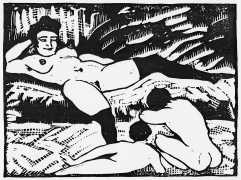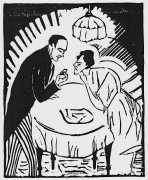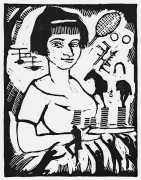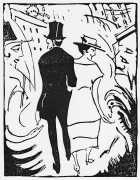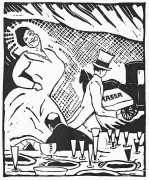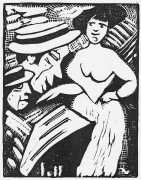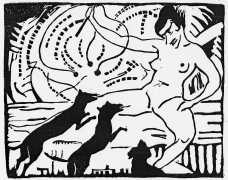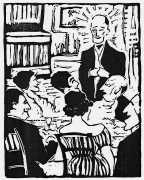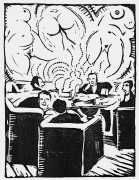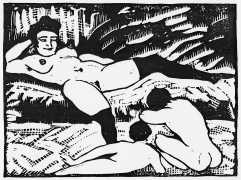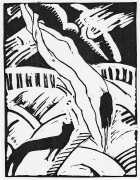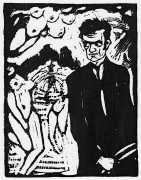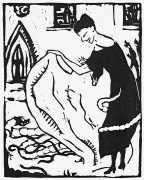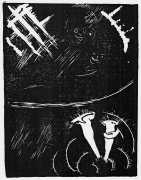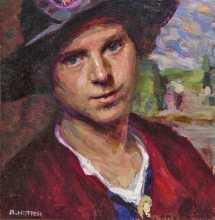 Apart from a short period in the 1930s when she taught in Hungary, the Austrian artist Alwine Hotter spent almost all her life in the town she grew up in, Graz, the capital of the southern province of Styria.
Apart from a short period in the 1930s when she taught in Hungary, the Austrian artist Alwine Hotter spent almost all her life in the town she grew up in, Graz, the capital of the southern province of Styria.
From 1912 to 1915 she studied at the Graz State Art School with Anton Marussig and Alfred von Schrötter, and later for a few months in Munich with Heinrich Knirr and Hermann Gröber.
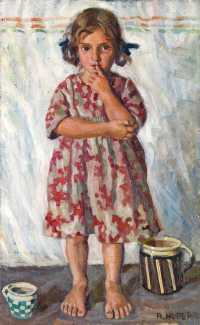
In 1918 she met fellow Graz painter Julius Franz Schütz (1889–1961) with whom she had an intimate relationship, and together with a small group of like-minded artists they founded the progressive but short-lived Graz Artists’ Association, called Freiland (Freeland). Hotter was very much influenced by the German Expressionists, especially Emil Nolde, Lovis Corinth and Jeanne Mammen, though she found it much easier to sell more conventional portraits and landscapes. Her work consists mostly of sensitively-observed portraits, plus several graphic cycles with socially critical, dreamy, nightmarish, and sometimes erotic content.
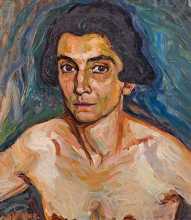
In 1920 she took part in a Freiland exhibition at the Vienna Secession, and in 1924 was awarded the Silver Medal of the City of Graz. Up until old age she maintained friendly relationships with the group of artists around Paul Schmidtbauer and his family.

